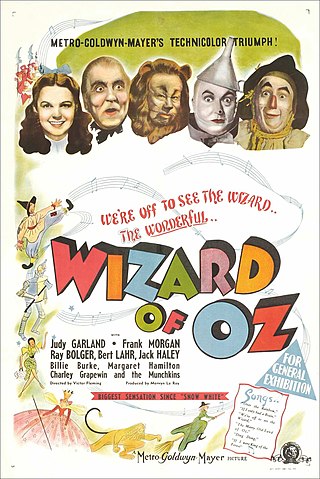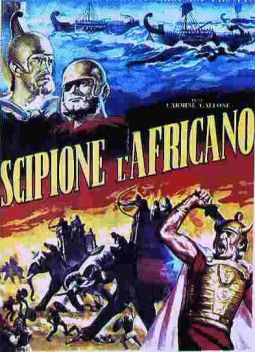
The 1930s was a decade that began on January 1, 1930, and ended on December 31, 1939. In the United States, the Dust Bowl led to the nickname the "Dirty Thirties".

Marcello Vincenzo Domenico Mastroianni was an Italian film actor, regarded as one of his country's most iconic male performers of the 20th century. He played leading roles for many of Italy's top directors in a career spanning 147 films between 1939 and 1996, and garnered many international honours including two BAFTA Awards, two Best Actor awards at the Venice and Cannes film festivals, two Golden Globes, and three Academy Award nominations.
The year 1939 in film is widely considered the greatest year in film history. The ten Best Picture-nominated films that year include classics in multiple genres.
The following is an overview of events in 2007 in film, including the highest-grossing films, award ceremonies and festivals, a list of films released and notable deaths. The highest-grossing film of the year was Pirates of the Caribbean: At World's End, which was just marginally ahead of Harry Potter and the Order of the Phoenix. 2007 is often considered one of the greatest years for film in the 21st century.

The Wizard of Oz is a 1939 American musical fantasy film produced by Metro-Goldwyn-Mayer (MGM). An adaptation of L. Frank Baum's 1900 children's fantasy novel The Wonderful Wizard of Oz, it was primarily directed by Victor Fleming, who left production to take over the troubled Gone with the Wind. It stars Judy Garland, Frank Morgan, Ray Bolger, Bert Lahr, Jack Haley, Billie Burke and Margaret Hamilton. Noel Langley, Florence Ryerson and Edgar Allan Woolf received credit for the screenplay, while others made uncredited contributions. The music was composed by Harold Arlen and adapted by Herbert Stothart, with lyrics by Edgar "Yip" Harburg.

The Chamber of Deputies is the lower house of the bicameral Italian Parliament, the upper house being the Senate of the Republic. The two houses together form a perfect bicameral system, meaning they perform identical functions, but do so separately. The Chamber of Deputies has 400 seats, of which 392 will be elected from Italian constituencies, and 8 from Italian citizens living abroad. Deputies are styled The Honourable and meet at Palazzo Montecitorio.

Telefoni Bianchi films, also called deco films, were made by the Italian film industry in the 1930s and the 1940s in imitation of American comedies of the time in a sharp contrast to the other important style of the era, calligrafismo, which was highly artistic. The cinema of Telefoni Bianchi was born from the success of the Italian film comedy of the early 1930s; it was a lighter version, cleansed of any intellectualism or veiled social criticism.

Pietro Germi was an Italian film director, screenwriter, and actor, noted for his development of the neorealist and commedia all'italiana genres.
A list of some notable films produced in the Cinema of Italy ordered by year and decade of release For an alphabetical list of articles on Italian films see Category:Italian films.

Mario Soldati was an Italian writer and film director. In 1954, he won the Strega Prize for Lettere da Capri. He directed several works adapted from novels, and worked with leading Italian actresses, such as Sophia Loren and Gina Lollobrigida.

Goffredo Alessandrini was an Italian scriptwriter and film director. He also acted, edited, and produced some films.

Mario Mattoli was an Italian film director and screenwriter. He directed 86 films between 1934 and 1966.

Vatican City pursued a policy of neutrality during World War II, under the leadership of Pope Pius XII. Although the city of Rome was occupied by Germany from September 1943 and the Allies from June 1944, Vatican City itself was not occupied. The Vatican organised extensive humanitarian aid throughout the duration of the conflict.

Scipio Africanus: The Defeat of Hannibal (Italian title: Scipione l'africano is a 1937 Italian historical propaganda film directed by Carmine Gallone about Scipio Africanus from the time of his election as proconsul until his defeat of Hannibal at the Battle of Zama. The film received financial backing from Benito Mussolini's dictatorship and its production was overseen by Vittorio Mussolini.
Giorgio Ferroni was an Italian film director.

Kit Carson is a 1940 Western film directed by George B. Seitz and starring Jon Hall as Kit Carson, Lynn Bari as Delores Murphy, and Dana Andrews as Captain John C. Frémont. This picture was filmed on location at Cayente (Kayenta), Arizona and was one of the early films to use Monument Valley as a backdrop. The supporting cast features Ward Bond as a character named "Ape", future Lone Ranger Clayton Moore without his mask, and Raymond Hatton as Jim Bridger.
Richard Brody is an American film critic who has written for The New Yorker since 1999.













